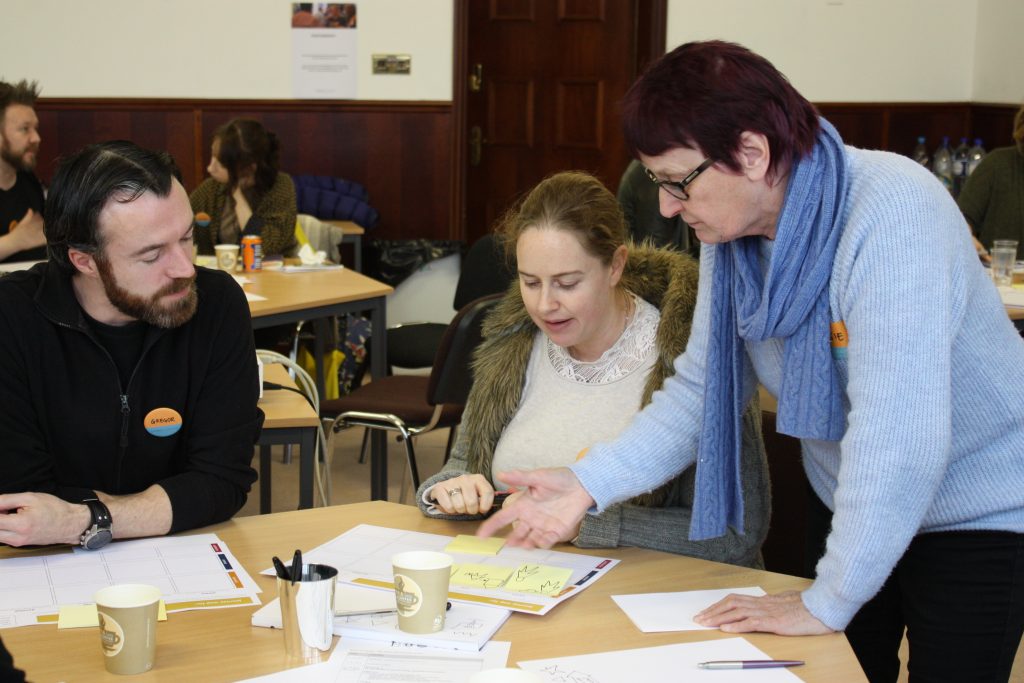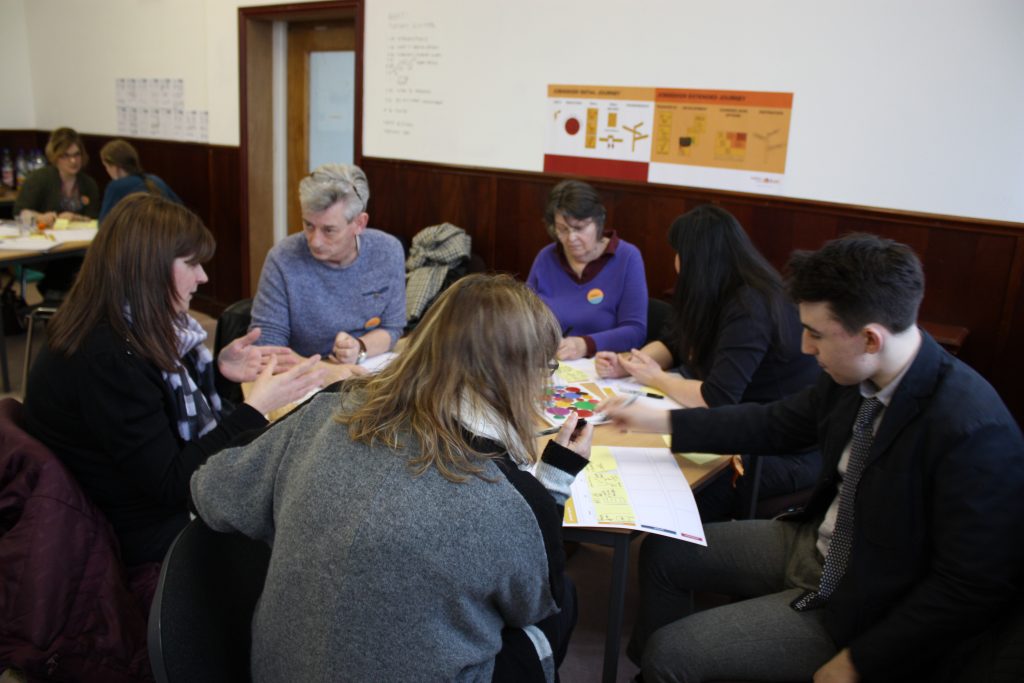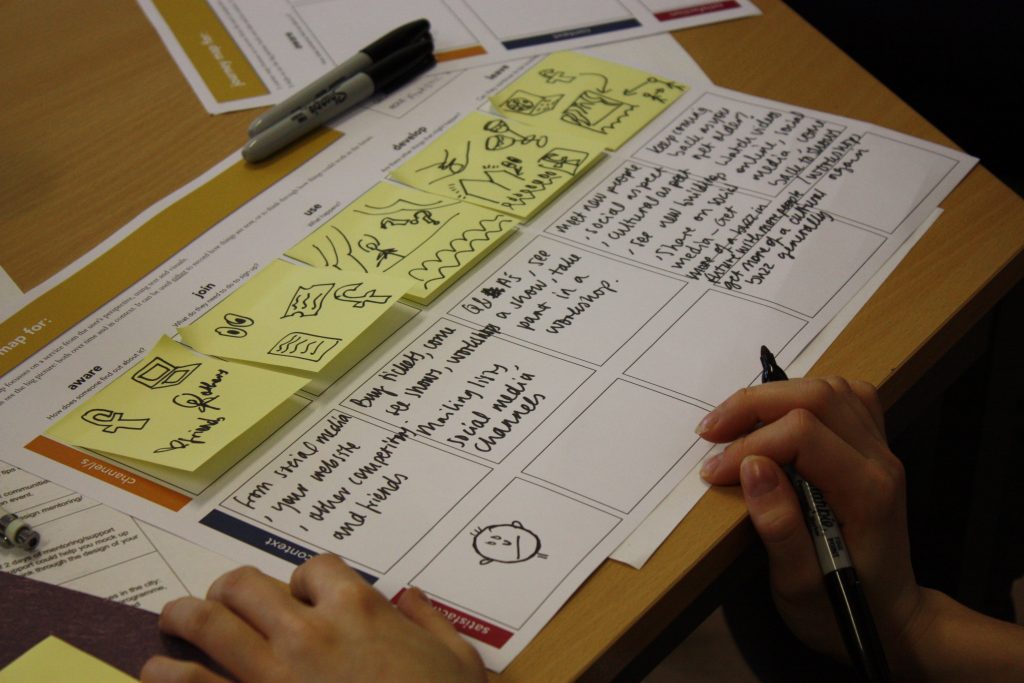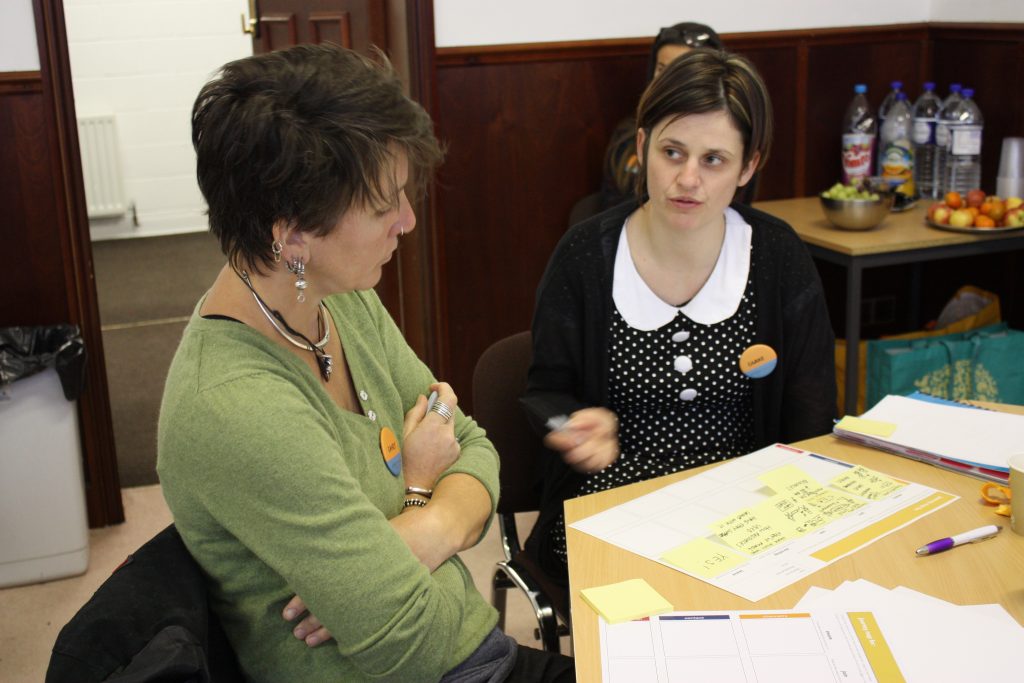
A feature by Perrine Mercenier.
BOOST by Design is a new project – developed and led by Creative Dundee – for Dundee’s Social Enterprises who are keen to develop their understanding of design, innovation and digital skills. You can learn about the project here. We wanted to share what happened during the first session on Thursday 21 Feb 2017 at The Circle.
Around 50 established and 25 aspiring Social Enterprises are now based in Dundee, all of which provide great products and services and create huge and important social benefits for communities. The BOOST by Design programme – the first of its kind – brings design thinking and innovation skills into the mix to improve what happens behind the scenes of social enterprises. As a social enterprise, Creative Dundee is keen to make sure that Dundee’s third sector collaborates more with, and benefits from, being involved in the city’s creative scene.
With assistance of Dundee Social Enterprise Network, the programme provides the groundwork for 13 early stage Social Enterprises to benefit from gaining a better understanding of service design, digital innovation and community building to improve the sustainability and growth of their social enterprises.
Open Change are using service design know-how for the first two workshops to look at the potential for social enterprises to adopt service design thinking. For the first workshop, Open Change introduced to the group simple methods of interviewing and observation as visual thinking, user interviews, journey mapping and personas.
What is Service Design?
Design is generally associated with the process of making of chairs, tables, clothes, etc. but design methods are also critical to developing and delivering good services. Service Design is about putting people at the heart of thoughtfully designed activities, processes and experiences, making them immediately understand what the service is and why it’s important. Adopting this process makes services easier to understand, use and deliver.
Service Design methods and processes are driven by four key concepts:
- Human centered: empathising by being closer to your customers/users/patients/staff
- Prototyping: testing ideas (not just one) in the physical world to see how they work
- Social: being more collaborative by sharing with people who are not like you
- A bias to action: not just talking, but acting, trying, testing and not being afraid to fail
These methods have now spread in public services, health care, and many other sectors, improving the user experience.
Interviews and observation
Spending time speaking to people – whether they are your customers or not – users, patients, clients or staff is critical to get a better feel about how they use your services and better identify the potential issues they face.
Customer journey mapping
Representing their ideas visually, working collaboratively in pairs and following the structured path of the customer journey mapping, participants were able to put themselves in the shoes of their customers to explain to others what their organisation does.
It was really great to see participants being able to quickly translate the tools into practical ways to improve their own enterprises!
The purpose of the customer journey mapping is to learn more about your user’s experience and help you know which part of your process should be delivered differently.
“It gave me a structure to tell what my organisation does, the process helped me to assess the impact of each step of our audiences’ experience. I realised that I don’t necessarily ask my customers about their satisfaction at each step of the process.” – Boost by Design participant
Personas
Participants were invited to think about their user’s profile and create personas to help design better services. Though fictitious, personas are based on real people’s stories and are useful for representing the different segments/profiles of your customers or users, and potentials users, when making decisions about how your services should evolve.
Insights of the day
Facing all different kinds of challenges, the social enterprises came to this workshop with their own expectations and objectives but all with the common willingness to learn something that could help them make their business grow and become more sustainable.
It was really interesting to see how participants made connections, shared about their projects and learnt from each other making the workshop even more informative and constructive. Though different, all realised that their businesses use creative solutions to solve social issues.
Social enterprises will delve deeper into these concepts during the next workshop which will take place on 28 February where participants will be asked to identify a focused problem and generate ideas collaboratively.
We look forward to sharing with you insights from the next workshops!


